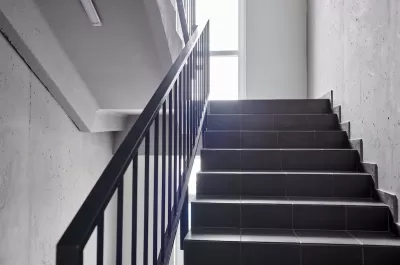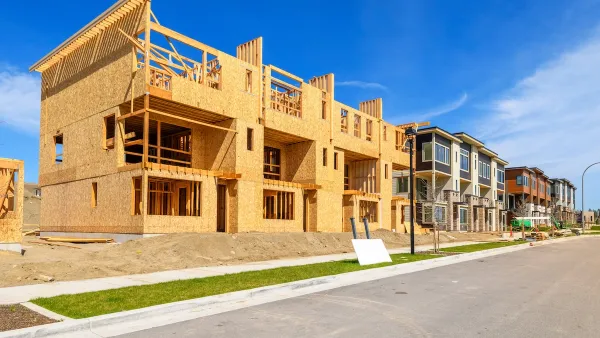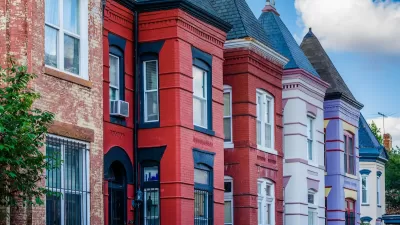A state bill that would allow multifamily buildings to only include one staircase could help boost the housing supply and encourage more spacious and well-designed apartments.

The Los Angeles Times Editorial Board is getting behind the movement for single-staircase reform, which proponents argue would create the opportunity for more housing.
The editorial highlights Assembly Bill 835, which “would direct the State Fire Marshal to propose standards to allow multifamily buildings with one stairway while still protecting residents, which could make it easier to build small-to-medium sized complexes on small lots.”
Single-staircase buildings were outlawed in many U.S. cities and states in the early 20th century as part of an effort to improve fire safety in multifamily buildings. “In recent years, however, indoor sprinklers and fire-safe construction have become common in new buildings, and architects and housing advocates argue that the two-stairway requirement should be reconsidered.”
The two-staircase requirement has eliminated building designs common in other countries that provide more variety and opportunities for community, while data suggests that there is no difference in fire safety given other modern fire standards.
The editorial board acknowledges that allowing single-stair buildings wouldn’t solve the housing crisis, but it could join other policy solutions such as ADUs in alleviating the shortage and creating more interesting and comfortable buildings. “The change would give architects more flexibility in designing larger units for families, with shared courtyards, more light and ventilation.”
FULL STORY: Editorial: How changing the rules on stairways could help California build more homes

Planetizen Federal Action Tracker
A weekly monitor of how Trump’s orders and actions are impacting planners and planning in America.

Chicago’s Ghost Rails
Just beneath the surface of the modern city lie the remnants of its expansive early 20th-century streetcar system.

San Antonio and Austin are Fusing Into one Massive Megaregion
The region spanning the two central Texas cities is growing fast, posing challenges for local infrastructure and water supplies.

Since Zion's Shuttles Went Electric “The Smog is Gone”
Visitors to Zion National Park can enjoy the canyon via the nation’s first fully electric park shuttle system.

Trump Distributing DOT Safety Funds at 1/10 Rate of Biden
Funds for Safe Streets and other transportation safety and equity programs are being held up by administrative reviews and conflicts with the Trump administration’s priorities.

German Cities Subsidize Taxis for Women Amid Wave of Violence
Free or low-cost taxi rides can help women navigate cities more safely, but critics say the programs don't address the root causes of violence against women.
Urban Design for Planners 1: Software Tools
This six-course series explores essential urban design concepts using open source software and equips planners with the tools they need to participate fully in the urban design process.
Planning for Universal Design
Learn the tools for implementing Universal Design in planning regulations.
planning NEXT
Appalachian Highlands Housing Partners
Mpact (founded as Rail~Volution)
City of Camden Redevelopment Agency
City of Astoria
City of Portland
City of Laramie





























